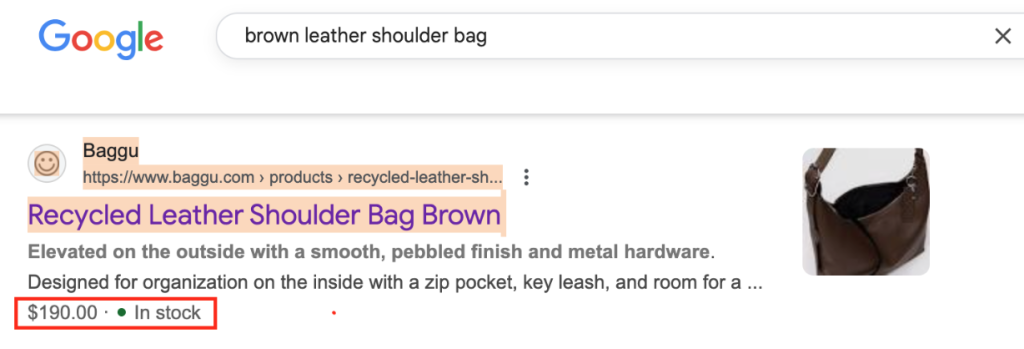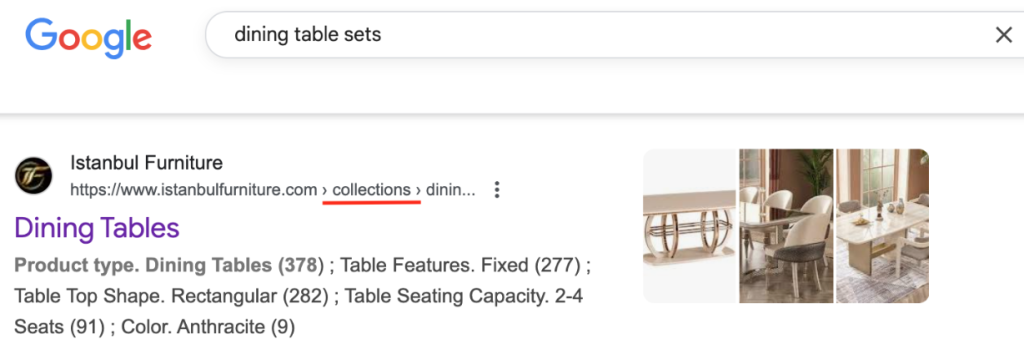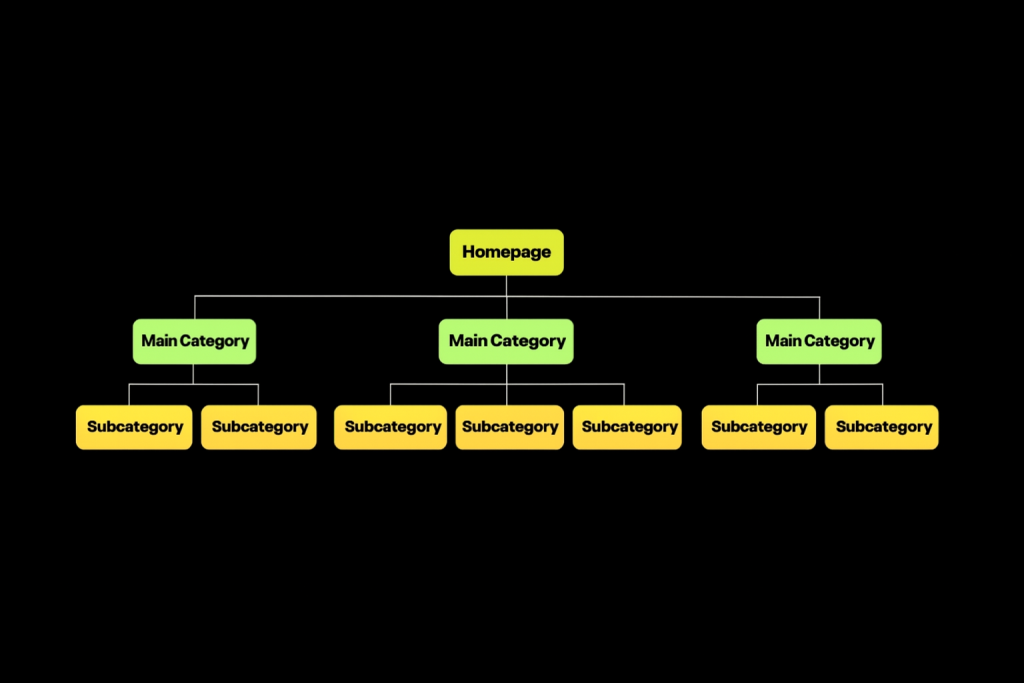Attracting the Right Traffic and Converting to Sales
Online shopping continues to evolve every day. Users now get suggestions from Siri, discover products with their cameras, and rely on AI summaries for quick insights. In this dynamic environment, E Commerce websites that are well prepared stand out and capture user attention.
The real opportunity does not lie only in technical details but in the right strategy. By adapting to how people search, shop, and decide today, your website can achieve sustainable success. This guide shows step by step E Commerce SEO strategies for 2025, providing a roadmap for sustainable traffic and high conversions supporting your ad investments while building longterm growth.
What is E Commerce SEO?
E Commerce SEO is not only about making online stores visible in search engines; it is about providing the right answer to the right question at the right time. With dedicated optimization for product and category pages, and professional SEO services, brands not only attract organic traffic but also position themselves as authoritative when potential customers are searching.
Remember: the most effective way to reach users who don’t yet know your brand but are actively looking for your products is SEO. Being visible at the moment of need is the foundation for gaining not just visitors but real customers.
SEO enriches user experience, strengthens trust, and improves conversion rates steadily increasing sales. When done correctly, SEO offers long term growth opportunities and sustainable digital success.
In this article, as Pella Global, we reveal the strategies we apply in E Commerce SEO and the value these approaches bring to brands.
How is SEO Applied in E Commerce Websites?
Standing out in E Commerce is not achieved simply by showcasing products, designing stylish interfaces, or running discount campaigns. The real difference begins with the right strategy, powered by accurate data analysis.
SEO not only positions your website strongly in search engines but also enhances user experience, builds trust, and drives sustainable growth in sales. This is how a longterm success story begins.
E Commerce SEO strategies are not defined by a single rule they require evaluating multiple factors simultaneously. Every step must be tailored to your website and implemented correctly to deliver sustainable results.
For brands selling commercial products, the challenge is not just to be visible but to design stronger web performance than competitors and deliver a trustworthy experience at the exact moment of customer need. This raises conversion rates and creates long term growth.
Here are the most effective SEO steps that attract potential customers and add longterm value to your brand:
- The right keywords: Target terms aligned with user intent.
- Category optimization: Build category pages for both search engines and user experience.
- Web Site structure: Organize with a clear hierarchy and smooth navigation.
- Short, clear URLs: Easy to read for both users and search engines.
- Page speed: A slow page never drives sales.
- Mobile App Development: Flawless experience on all devices is the key to conversions.
- Structured data: Use schema markup to stand out in search results.
- Competitor analysis: Spot weaknesses in competitors and shape your strategy.
- Technical SEO: Ensure flawless crawling, indexing, and security.
- Customer reviews: Social proof strengthens trust and engagement.
Strategy begins with accurate data analysis, and sustainable growth comes from disciplined execution of these steps.
Product and Category Based Keywords
Balanced use of both product focused and categoryfocused keywords is essential in keyword research.
How to Do Keyword Research?
Success starts with the right keywords. For E Commerce websites, keyword analysis is nonnegotiable. Two critical factors matter when choosing keywords:
- Relevance to your product or service: Misaligned keywords may bring traffic but no sales.
- Search volume: Target terms that users actively search.
The real strategy begins where these two criteria intersect. Correct keyword choices not only boost visibility but also drive sustainable conversions and sales.
Product Focused Keywords
Product keywords precisely define a specific item and target users with strong purchase intent.
Example:
- General: bag
- Productfocused: brown leather shoulder bag

While these longtail keywords may have lower search volumes, visitors arriving via them are far more likely to buy. They simplify the journey to the product, driving qualified traffic.
Details like price, stock status, and search results help users decide instantly. These signals build trust and increase clickthrough and conversion rates in measurable ways.
Category Focused Keywords
Category keywords cover groups of products, appealing to a wider audience and boosting site navigation.
Example:
- General: table
- Collections: dining table sets

These keywords usually carry higher search volumes, signaling users in the research phase who are still exploring options. Optimizing category pages for such terms provides variety and helps guide shoppers toward individual product pages. The outcome is not only increased traffic but also longer sessions, more page views, and stronger conversions.
In short:
- Product keywords capture readytobuy audiences.
- Category keywords attract broader audiences and guide them deeper into the funnel.
SEO-Friendly Site Structure
A simple, scalable, and user-friendly architecture provides advantages for both search engines and visitors.
Site architecture is the backbone of SEO work in E Commerce websites.
A poorly designed structure makes the customer’s shopping journey difficult and prevents search engines from understanding your site.
On the other hand, a well-designed architecture paints a completely different picture:
- Visitors reach the product they’re looking for in the shortest path,
- Search engines crawl all pages without issues,
- Authority flow between pages is strengthened,
- As user experience improves, conversion costs decrease.
If you want success in E Commerce SEO, first perfect your site architecture.
The rest will naturally work like a strategic chain.
What Makes a Good Site Architecture?

A properly planned site hierarchy resembles a well-organized library. Just as books, categories, and sections are arranged logically, your E Commerce site should present products in the same order.
A user should be able to reach the desired product within three clicks at most.
Key Points When Building Site Architecture
- Categorize from specific to general: Build a structure from product to main categories.
- Create category structures: Group products to make navigation easier.
- Build an internal linking network: Strengthen authority flow by connecting categories.
- Avoid overlapping categories: Choose a clear structure instead of multiple categories for the same product.
- Add breadcrumb navigation: Help users see their current location easily.
- Add related products section: Keep users longer on the site by showing alternatives.
- Ensure homepage access: The homepage should act as a hub to all categories.
- Add important categories to the footer: Increase visibility of strategic categories.
What Problems Does a Poor Site Architecture Create?

The diagram above shows a typical example of a faulty site architecture. When categories and subcategories go too deep and branches become complex, it makes it difficult for users to reach the products they’re looking for.
This leads to users getting lost, weaker user experience, and reduced purchase likelihood.
A poorly structured site architecture can cause issues for your E Commerce SEO efforts. If it takes four or more clicks to reach a category:
- User experience is negatively affected,
- Authority between pages is not transferred efficiently,
- Search engines struggle to crawl the site and this is a major problem.
By contrast, a clean and understandable site architecture is one of the cornerstones of SEO for your E Commerce site. A well-designed structure helps search engines understand your site better and makes shopping easier for users.
As a result, it becomes possible to rank higher and improve your sales performance.
SEO Friendly URL Structure
What is an SEO Friendly URL?
An optimized URL clearly describes page content and is both searchengine and userfriendly.
Why is it Important?
- Provides readable, trustworthy links.
- Creates logical hierarchy between products and categories.
Best Practices for URLs:
- Keep them short and descriptive.
- Include target keywords.
- Reflect category structure.
- Avoid Turkish characters, capital letters, and unnecessary parameters.
- Separate words with hyphens.
- Use stock codes if needed to prevent conflicts.
Bad: https://www.site.com/cat?-catid=456
Better: https://www.site.com/kitchen/ceramic-pan
Best: https://www.site.com/ceramic-panz
Site Speed and Mobile Responsiveness
Site speed is one of the most critical SEO factors. Fast pages reduce bounce rates and increase purchases. Google recognizes speed as a direct ranking factor.
Mobile responsiveness is equally vital. With mobile traffic rising, Google’s mobile first indexing makes performance on handheld devices decisive. Poor speed or mobile usability leads to both user loss and ranking drops.
Result: a fast, mobile friendly E Commerce site not only improves user experience but also increases conversions and rankings.
Competitor Analysis
One of the most critical steps for sustainable success in E Commerce is competitor analysis. This step is not only about identifying who ranks at the top, but also about understanding the entire market and fueling your own roadmap with data.
Competitor analysis should be addressed in 4 main dimensions:
- Visibility Analysis
- Which competitors rank at the top for your target keywords?
- Which keywords are driving their organic traffic?
- Which pages attract the most visitors?
- How visible are their ads (Google Ads, Meta, etc.)?
- Do they integrate SEO with Ads?
Threat: Competitors are consistently visible for high volume, conversion focused keywords.
Opportunity: Chance to stand out in niche keywords or in segments where competitors fall short.
- Technical & UX Analysis
- Site speed and Core Web Vitals performance
- Mobile compatibility and design simplicity
- Navigation and site architecture (do users quickly find what they’re looking for?)
- Checkout process and conversion optimization
- Language options and multicurrency support
Threat: Competitors with high UX standards minimize abandonment rates.
Opportunity: Offering a simpler, faster, and more userfocused experience.
- Content & Brand Perception Analysis
- Quality of blogs, category, and product descriptions
- Use of visuals, videos, and infographics
- Brand storytelling and positive PR efforts
- Social media content and engagement levels
- Influencer collaborations
Threat: Competitors rapidly increase trust through strong content and brand perception.
Opportunity: Filling the gaps with more authoritative and valuedriven content.
- Backlink & Digital Authority Analysis
- Number, quality, and diversity of backlinks
- Visibility in press, PR, and industry sources
- Social backlinks (YouTube, TikTok, LinkedIn impact)
- Domain authority and trust signals
Threat: Competitors building longterm authority with strong PR & backlink sources.
Opportunity: Building stronger signals through natural, authoritative relationships.
Outputs: What Does Competitor Analysis Provide?
- Identify Threats: Understand competitors’ strengths and take action to avoid falling behind.
- Identify Opportunities: Spot competitors’ weaknesses and capture market share from them.
- Provide Data for Strategy: Decide where to invest based on market evidence.
- Become a Game Changer: Evolve from being a follower to a market leader.
Technical SEO
E Commerce websites often consist of hundreds or even thousands of pages. Therefore, technical SEO is not just a detail of optimization it is the foundation of your site’s infrastructure security and visibility. How easily search engines can crawl your site, interpret it correctly, and deliver the best experience to users is directly tied to the strength of your technical infrastructure.
Key Points to Consider
- Site Speed
Why Important? Slow loading pages increase bounce rates and lower Google rankings.
Threat: If competitors are faster, user loss increases.
Opportunity: Fast pages deliver both conversion and visibility advantages. - Robots.txt & XML Sitemap
Why Important? Prevents bots from wasting time on irrelevant pages and ensures crawl budget is used effectively.
Threat: Poorly designed robots.txt may block critical pages from being indexed.
Opportunity: Strategic directives guide search engines’ energy toward the right pages. - SSL Certificate (HTTPS)
Why Important? A trust signal critical for both rankings and user confidence.
Threat: Sites without SSL trigger “not secure” warnings in browsers, hurting conversions.
Opportunity: A secure appearance reduces cart abandonment. - Structured Data (Schema Markup)
Why Important? Enables product details like price, stock, and star ratings to appear in search results.
Threat: Competitors using rich snippets can boost their clickthrough rates.
Opportunity: Gaining more clicks by appearing in rich results (rich snippets). - Redirects
Why Important? Prevents duplicate content issues, preserves, and distributes link equity. Threat: Incorrect redirects cause indexing loss and traffic drops.
Opportunity: Correct redirects transfer old page authority to new pages, preserving SEO value. - Mobile Compatibility
Why Important? With Google’s mobile first indexing, mobile performance is critical.
Threat: Non mobile friendly sites suffer ranking and user experience losses.
Opportunity: Perfect mobile experiences boost conversion rates. - Log Analysis & Crawl Budget Management
Why Important? Understanding how search engine bots navigate the site reveals errors and opportunities.
Threat: Bots wasting time on irrelevant pages push important pages to the background.
Opportunity: Prioritizing critical product and category pages delivers faster results.
Technical SEO is invisible to users, but its results directly affect sales.
A strong technical structure:
- Provides search engines with fast and clear access.
- Delivers seamless experiences to users.
- Builds trust and authority for your brand.
When implemented correctly, technical SEO becomes not only a ranking factor but also a sales accelerator.
UserGenerated Content (UGC)
Customer reviews, photos, and experiences are powerful signals. Most buyers check reviews before purchasing. Unlike brand written text, user reviews are trusted as authentic, driving both conversions and SEO:
- Fresh content keeps pages active.
- Keywords appear naturally.
- Search engines reward updated pages.
Encouraging reviews via incentives (discounts, campaigns) can multiply this effect.
Strengthen Your E Commerce: Stand Out with Pella Global
When the right keywords, solid site architecture, fast and mobile friendly performance, structured data, and authentic user content come together, organic traffic turns into real sales and lasting brand trust.
When strategy, technology, and content align, E Commerce SEO builds a longterm success story.
At Pella Global, the best SEO services, we empower your product and category pages, solidify your technical foundations, and deliver conversion-focused content that elevates your brand.
Make your E Commerce business more visible, effective, and profitable contact us today and let’s grow your brand together in the digital space.